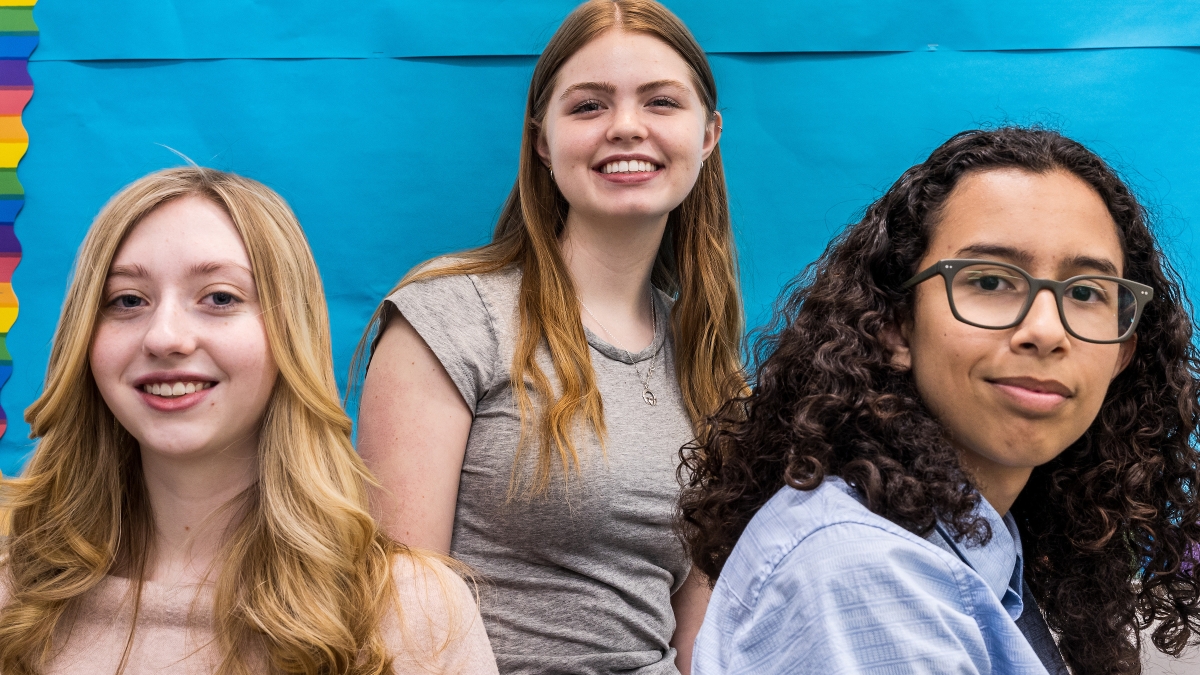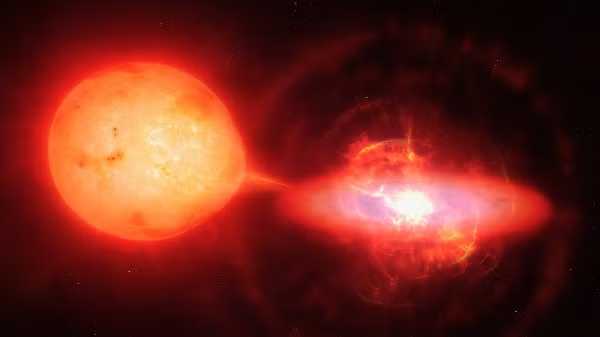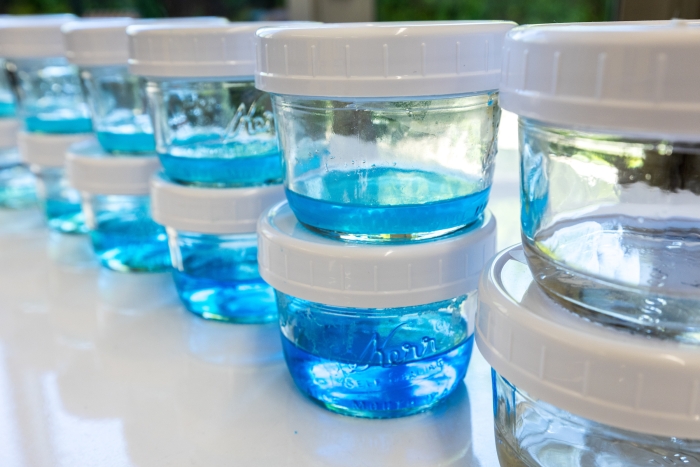Herberger Young Scholars Academy students win prestigious Cambridge awards

Gary K. Herberger Young Scholars Academy sophomores (from left) Jessica Finnie, Ema Saliba and Liam MacLaughlin pose at the school, which is located at ASU's West Valley campus, on Thursday, March 21. The three were named global winners of the Cambridge Science Competition for their research project on the removal of heavy metals from water. Photo by Charlie Leight/ASU News
Michael Twilling, the executive director of the Gary K. Herberger Young Scholars Academy on Arizona State University’s West Valley campus, likes to say the school “opens doors” for its students.
“These kids often run into ceilings in a classroom because they can’t extend their learning to the degree that they’re ready for,” Twilling said. “We’re just able to accommodate that.”
Four academy students walked through that open door recently by winning awards in global competitions run by the International Education Group of Cambridge University Press and Assessment.
Three 15-year-old sophomores — Jessica Finnie, Ema Saliba and Liam McLaughlin — were named global winners of the Cambridge International Education Science Competition for their research project on the removal of heavy metals from water.
The Young Scholars Academy provides highly gifted students in grades seven to 12 an educational experience best suited to their unique needs. The school, which was created as an initiative of the Mary Lou Fulton Teachers College with a $20 million endowment from Gary and Jeanne Herberger, has 120 students, and projects to have 130 in the 2024–25 school year.
Finnie, Saliba and McLaughlin said the ability to use ASU’s resources for their project — including the use of a spectrophotometer, an instrument that measures the amount of photons absorbed after it passes through a sample solution — was vital to their research and winning the science competition.
“I think that this school gives us the resources and kind of the jumping off point for us to go where we want to go and look into what we want to look into,” McLaughlin said. “So we’re able to achieve things like this. And I’m just really grateful.”
Saliba said she and her teammates had wanted to participate in a science competition and, at the same time, address their passion about sustainability and the environment.
Using a solution of blue copper sulfate, sodium alginate polymerization and, believe it or not, the sphericals found in Boba drinks, they were able to remove heavy metals from water, a find that is critical as public schools across the country are faced with high levels of lead in drinking water.
“Before we actually started conducting the experiment, this was all just a hypothesis,” Finnie said. “We didn’t know if this would actually work.”
When it did work — when they had their "aha" moment — it was a fulfilling feeling.
“To be awarded for researching something that not only interested us, but could also benefit the world, was a really cool experience,” Saliba said.
Said Finnie: “It was kind of like this realization that we can apply this to a field that we’re passionate about. And that’s a really good moment to have in science.”
None of the students won monetary awards for their achievement, but the award looks good on a college application. And they all agreed on one thing: They couldn’t have done it if they weren’t part of the Young Scholars Academy.
“I think being in this environment, you’re surrounded by people who have that same drive as you have to just continue learning,” Saliba said. “I think that really motivates you. And I like being given the resources and then figuring out what we want to do with those resources.”
In other words, pick a door.
“I do like to point out that this makes us look wonderful,” Twilling said. “But, really, the truth is, we just opened those doors for the kids to walk through and then they did it all on their own.”
More Science and technology

Stuck at the airport and we love it #not
Airports don’t bring out the best in people.Ten years ago, Ashwin Rajadesingan was traveling and had that thought. Today, he is an assistant professor at the University of Texas at Austin, but back…

ASU in position to accelerate collaboration between space, semiconductor industries
More than 200 academic, business and government leaders in the space industry converged in Tempe March 19–20 for the third annual Arizona Space Summit, a statewide effort designed to elevate…

A spectacular celestial event: Nova explosion in Northern Crown constellation expected within 18 months
Within the next year to 18 months, stargazers around the world will witness a dazzling celestial event as a “new” star appears in the constellation Corona Borealis, also known as the Northern Crown.…


